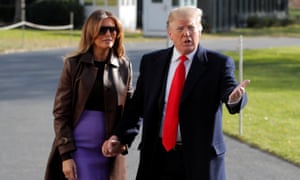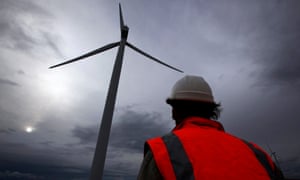Extract from The Guardian
Opinion
Donald Trump
Richard Wolffe
The spectacle of Mueller cornering Trump’s gang is fascinating to watch and essential to the rebuilding of the rule of law
The
great unraveling has begun. Between the latest guilty plea by Donald
Trump’s fixer and the breakdown of a guilty plea by his campaign
chairman, the threads are fraying on the scheming enterprise that is
Trump Inc.
The man pulling at the many loose ends of this loosey-goosey business is working methodically in ways that are only clear in hindsight. Robert Mueller, the special counsel, is a strategic mastermind cornering a gang of simpletons watched by a peanut gallery of gawkers and hecklers.
The spectacle is both fascinating to watch and essential to the
rebuilding of the rule of law. The United States urgently needs to
resume its role as a global example of good government. Especially when
its own government is rotten to the core.The man pulling at the many loose ends of this loosey-goosey business is working methodically in ways that are only clear in hindsight. Robert Mueller, the special counsel, is a strategic mastermind cornering a gang of simpletons watched by a peanut gallery of gawkers and hecklers.
Republicans in Congress may refuse to investigate the Trump administration, but Mueller and the courts are reaffirming that it matters when people break election laws, tax laws, lobbying laws, or lie under oath. It matters when foreign agents conspire to attack the United States by hacking into the computers of one of its main political parties.
Meanwhile our simpleton-in-chief can only sputter on the sidelines of Twitter about the many ways Mueller is plainly driving him nuts.
“Did you ever see an investigation more in search of a crime,” Trump tweeted while he should have been prepping for another world summit. As a matter of fact, investigations are supposed to search for crimes, but that’s beside the point for the man who can fire and hire an attorney general. He would much prefer an investigation into anyone else right now: the Grinch who stole Christmas, Hillary Clinton, the man who broke the bank at Monte Carlo. Anyone will do.
“After wasting more than $40,000,000 (is that possible?), it has proven only one thing – there was NO Collusion with Russia,” he tweeted barely an hour later, still stewing in his own resentment. “So Ridiculous!”
To answer the president’s questions: yes, it’s possible to spend a lot of federal dollars (see: corporate tax cuts, Trump administration). No, Mueller hasn’t cost the taxpayer a dime after all the property he seized from Trump’s campaign chairman. The only Ridiculous Thing about this is pretending that the Question of Collusion has been Answered.
But since you mentioned Collusion, Mr President, let’s yank a little more on this thread, shall we?
Trump: 'Michael Cohen is weak and trying to get a reduced sentence' – video
Normally you might describe a political figure profiting from his public office – even his potential for public office – as corrupt. But the leader of the free world prefers to describe it another way: good business.
“I was running my business while I was campaigning,” Trump told reporters on Thursday. “There was a good chance that I wouldn’t have won, in which case I would have gone back into the business and why should I lose lots of opportunities.”
Why indeed? Why surrender private profit when you want to enter public service? What a quaint idea, enshrined into US law by something called the Foreign Corrupt Practices Act.
"Trump has found himself surrounded by the most dismal collection of indicted, colluding, lying aides and employees"
We used to live in a world where America’s worst president ever was defined by his insistence that he wasn’t a crook. We now live in a world where America’s truly worst president ever insists that cash is king.
To be fair, Trump has good reason to feel victimized. Some way, somehow, he has found himself surrounded by the most dismal collection of indicted, colluding, lying aides and employees.
Imagine Trump’s surprise when he discovered that Cohen was, as he put it on Thursday, “a weak person” who is “lying very simply in order to get a reduced sentence”. Don’t you hate those weak selfish liars who pretend to be strong and helpful? It’s like saying you’re helping the depressed rust belt while slapping down tariffs that shutter its remaining factories.
Imagine Trump’s horror when he found that Paul Manafort, his campaign chairman, was guilty of financial fraud and lying to prosecutors. All the poor man was trying to do was change the Republican party platform on Russia’s annexation of Ukraine, and, well, collude with the president’s lawyers. Yes, he may have also secretly met with WikiLeaks during the election. But that’s no reason to think there was actual, you know, collusion.
We can be sure that Trump is as surprised as we are that federal agents on Thursday raided the offices of a Chicago alderman who also worked on property taxes for one Donald Trump.
Truly, has there ever been a wealthy businessman so mistreated by so many people who worked so closely for him? Even his national security adviser turned out to be a liar who had close contacts with the Russians after the 2016 elections. Imagine how Trump will feel when he sees Michael Flynn sentenced in a few days’ time.
Betrayed, no doubt, in more ways than one.
Trump is right. This investigation needs to come to an end. We need to know what Mueller knows. We need to know how Trump’s honest motive to make money was honestly at the heart of everything he has done. We need to forget the pee tapes and follow the money.




























